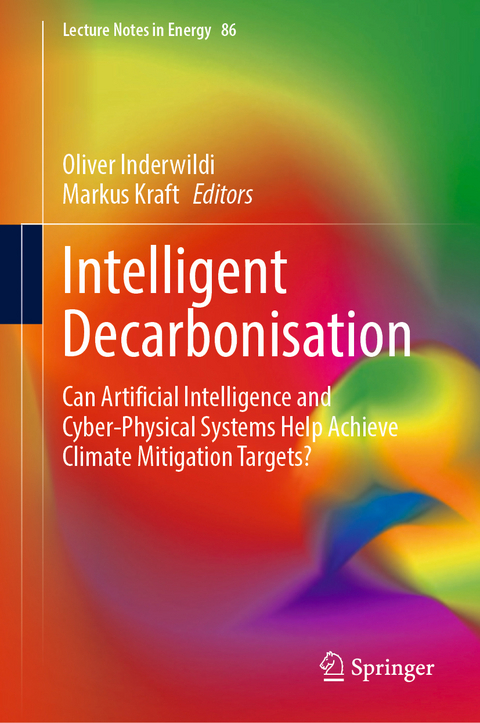
Intelligent Decarbonisation
Springer International Publishing (Verlag)
978-3-030-86214-5 (ISBN)
Intelligent Decarbonisation comprehensively assesses the current and future impact of digital technologies and artificial intelligence (AI) on the decarbonisation of key economic sectors.
The book is divided into four parts - Technology, Impact, Implications and Incubation - moving clearly from the theoretical and technical to the real-world effects and areas for future development. It also presents insights into the economic and environmental transformation fostered by digital technologies.
Intelligent Decarbonisation brings together work from private and public sector professionals, academics and think tank experts, and provides truly comprehensive insights into the topic. It is an interesting and informative text for policymakers, researchers and industry professionals alike.
lt;p>Dr Oliver Inderwildi has more than 20 years of experience in sustainability research and consulting gained in academia, think tanks, the private sector as well as international organisations. Dr Inderwildi combines in-depth knowledge on computational methods for efficient resource use with hands-on experience in business and political processes driving decarbonisation. He has published more than 70 academic research articles, 10 White Papers and has created numerous sustainable business models for private sector clients.
Professor Markus Kraft has more than 30 years of experience using computational models to solve real-world engineering problems and has published more than 200 scientific articles in this area. He is Professor of Chemical Engineering at the University of Cambridge, Fellow of Churchill College and the inaugural Director of the University of Cambridge's first overseas department, Cambridge CARES, in Singapore. Moreover, Professor Kraft is the Founder and Director of CMCL Innovations, an award-winning company offering software and technical consultancy services for the science, engineering and tech sectors.
Introduction.- Part I: Technology.- Cyber-Physical Systems.- Artificial Intelligence.- Smart Contracts & Blockchain.- Part II: Impact.- Decarbonizing Energy.- Decarbonising Industrial Production.- Decarbonizing Urban Systems.- Decarbonizing Transport & Logistics.- Part III: Implications.- Economic Assessments.- Necessary Policy Interventions.- Part IV: Incubation.- Financing Tomorrows Technology.- Flexible Technology Development.- Conclusions.
| Erscheinungsdatum | 25.04.2022 |
|---|---|
| Reihe/Serie | Lecture Notes in Energy |
| Zusatzinfo | XIII, 260 p. 80 illus., 76 illus. in color. |
| Verlagsort | Cham |
| Sprache | englisch |
| Maße | 155 x 235 mm |
| Gewicht | 571 g |
| Themenwelt | Naturwissenschaften ► Biologie ► Ökologie / Naturschutz |
| Technik ► Elektrotechnik / Energietechnik | |
| Schlagworte | Artificial Intelligence • climate change • Computer Science • Cyber-Physical Systems • Decarbonisation • Emissions • resources |
| ISBN-10 | 3-030-86214-3 / 3030862143 |
| ISBN-13 | 978-3-030-86214-5 / 9783030862145 |
| Zustand | Neuware |
| Informationen gemäß Produktsicherheitsverordnung (GPSR) | |
| Haben Sie eine Frage zum Produkt? |
aus dem Bereich


